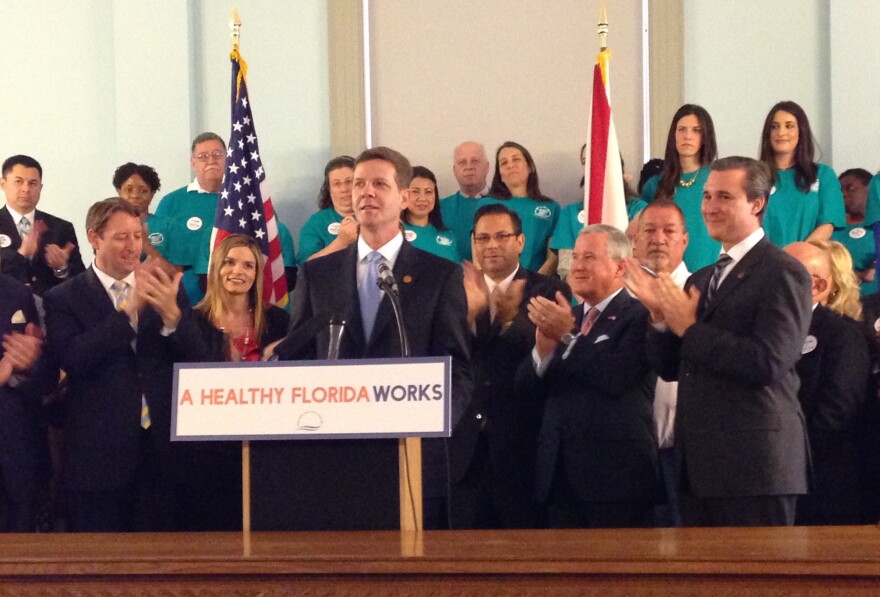The legislative graveyard is littered with dead bills, but some issues are too stubborn to go down without a fight. One of them is Medicaid Expansion. It’s is down, but some lawmakers and healthcare advocates are hoping to get it to move from the zombie column, into the land of the living. A lawsuit, coupled with the fate of Florida’s budget—may depend on it.
The issue of whether to expand Medicaid under the Affordable Care Act has experienced several deaths. Lawmakers killed the issue back in 2013. It died again in last year. But this year? It’s at the center of a major legislative stalemate. Florida’s Republican House leaders insist the issue is a goner. And Governor Rick Scott says flat out—it isn’t happening.
“What I’m not going to do is put our state in a position that I’m going to raise somebody’s taxes because the federal government has a program they won’t work with our state on," Scott said following an unsuccessful meeting with the U.S. Department of Health and Human Services on an extension of the low-income pool program.
But the Florida Senate is keeping hope-and the issue—alive. For the past two years, the chamber has sought to expand Medicaid, and it’s seen its plan killed in the House both times. But this year, led by Senate President Andy Gardiner, who works at a hospital—the Senate isn’t backing down. Instead, it’s doubling down on its Medicaid expansion plan—and has pulled in hospitals, and healthcare providers, local counties, chambers of commerce big and small—and healthcare advocates, like Florida Chain, and its CEO Leah Barber Heinz.
“Florida Chain is very encouraged by the leadership the Florida Senate has shown this year," she said when the Senate's plan was first unveiled. "We believe they understand what’s at stake for hardworking Floridians and the economy, so we’re pleased to see the movement forward.”
Chain and other healthcare advocates do have concerns about part of the Senate plan which calls for work requirements and suspension for non-payment, but continue to back it. Also driving the conversation is the federal government. In a month a critical hospital reimbursement program will go away, and with it, about $2 billion dollars in federal and state money that goes to hospitals treating high numbers of uninsured patients. Russ Armstead is CEO of Shands Hospitals in Jacksonville. He says if his hospital loses that funding, it will close.
“LIP is $95 million to the hospital. Plus another $25 million to our doctors. It’s 20 percent our budget. And if I lose it, I will close in a few months," he told a Senate healthcare panel.
Florida and eight other states get Low Income pool money—and it’s a reimbursement, not a form of health coverage. The federal government, through the Affordable Care Act—wants more people to be insured, and has offered more money to states that expand Medicaid for low-income people. Florida, and the other LIP states—are some of the holdouts. And the feds say any future LIP money partly depends on getting more people covered, in a not so subtle nod to Medicaid expansion. Governor Scott says that’s coercion. Attorney General Pam Bondi:
“The Supreme Court said—it could be any program—not Lip—any program, doesn’t have to be Low Income pool. But the Supreme Court said you can’t coerce us into expanding Medicaid, and that’s why we’re taking this up. It could be another program," she said.
A complete loss of the LIP funds would blow a billion dollar hole in the state budget, and lawmakers would have to give up things like tax cuts, and education increases—to plug it. The Senate believes it’s worth it to expand Medicaid and has used the federal government as its bolster to keep its expansion dreams alive. The House and the Governor, however, are adamantly opposed—thus leaving Medicaid expansion—and an overall state budget—in purgatory.





